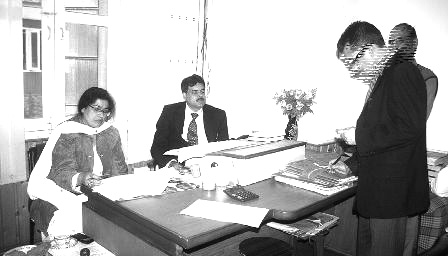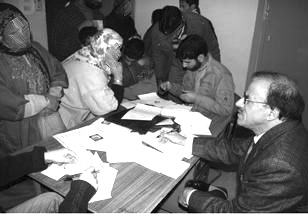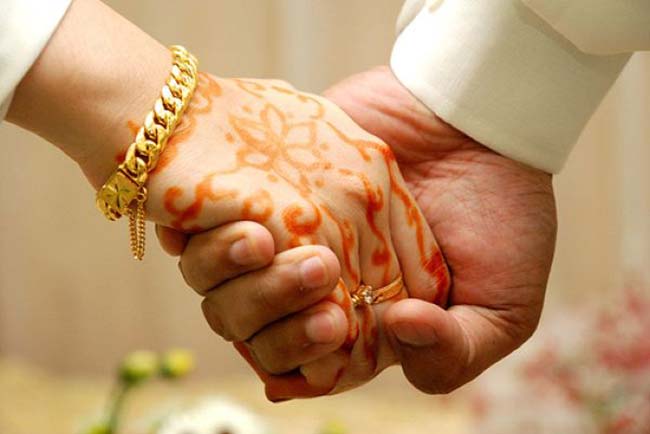While the issue of security for women hogged headlines in mainland India, Kashmir’s is a different story. Being a conservative society, very few cases of rape and molestation are reported to the police. And most of them are settled outside the court which leads to low conviction rate, Syed Asma reports.
After the horrific gangrape of a girl in Delhi, the issue of security for women became the talk of the town across India. In the days that followed the tragedy, punishment for the rapists and lethargy of the judiciary in dealing with such cases were extensively debated.
The National Crime Records Bureau says that a woman is raped in India every 20 minutes. This data is an indication of the prevalent menace in India and the less conviction rate of the criminals makes matters even worse.
Kashmir is no different. It has many cases registered under section 365, 366, 375 and 376 RPC. All these sections cover kidnapping, abduction and sexual offences including rape. But what makes Kashmir different is the nature of cases registered under these sections.

“Most of the cases registered under these sections in Kashmir are elopement cases and not actual rape cases,” says Kaneez Fatima, principal district and session judge, Baramulla.
Subaya Yaseen, a lawyer and a social activist says: “We have less number of rapes where locals are involved because we live in a Muslim majority place and we are not so much morally degraded that we have stopped respecting our sisters, daughters and mothers. It is still a safe place for us to move around.”
Advocate Altaf Mehraj says elopement cases make 90% of the total cases under these sections. “The number of cases registered under these sections is significant and if they would have been actual rapes, then it would have been very difficult for girls to work in offices and travel in buses.”
He further adds that less premarital counselling of couples and resistant behaviour of parents force young couples to elope. “Unnecessary class system of our society is one of the main reasons of elopement.”
The story of Zarina and Fahad is a reflection of this trend. Zarina, an under-graduate student and Fahad, a shopkeeper, were seeing each other for some time. The duo wanted to get married but their families resisted. They eloped and lived in Delhi for three months. When the families got to know about their address in Delhi, they forcibly got them back.
The girl’s parents have now registered a case against the boy under section 376 RPC and Zarina, under parental pressure, is planning to give a statement against Fahad, his lawyer says. But Fahad has submitted their Nikah Nama in court which makes his cases a bit strong, the lawyer believes.
Unlike Zarina, most of the women in these cases do not go against their husbands because they have married and sometimes have children as well. “In elopement cases, it is quite rare that the girl would go against her husband. So we have to acquit the accused in the case,” Kaneez Fatima says.
This is one of the reasons for less conviction rate of the criminals who are booked under sections which cover rapes. The conviction rate in these cases is very less here. “It is less than 1 percent,” says advocate Altaf. Other reasons for less conviction is a lethargic judiciary, loop-holed investigations by police and witnesses turning hostile in courts.
“The courts are overburdened because of the unavailability of required number of judges. So, it leads to adjournments of the cases and delays the verdicts as well,” says Kaneez Fatima. Her colleagues say that she gives extra time in the court and tries to dispose off as many cases as she can.
Many times, hostile victims affect the verdict as well. The statement of a rape victim is of utmost importance and decides the acquittal or the conviction of the accused, says Subaya, “Because we don’t have eye witnesses in rapes.”
Victims who turn hostile or compromise also lead to less conviction rate of the criminals. Hadiya is one such case.

Hadiya, 4, was raped by her 24-year-old neighbour, who works as a salesman in her locality. When called in the court to record her statement, Hadiya did not identify the accused. She said she was raped but refused to identify the accused present in the court. The judge had to dispose off the case and the accused was exonerated.
Hadiya’s lawyer was confident that the accused would be convicted in the case because he thought he had a strong case. “Police had given their report in our favour. Even the medical report clearly showed that the little girl was raped. We were only waiting to record her statement,” says the lawyer.
“One more genuine rapist was set free,” says a disappointed lawyer.
It was later confirmed by the lawyer that Hadiya’s parents had settled the matter outside the court for which they received a hefty amount by the accused. They had pressurized the four-year-old girl not to identify her rapist in the court room.
But there are a few real rape cases which are not registered with the police and hence do not reach the courts due to social stigma attached to it. Most of the rape victims end up being patients of depression.
Haifa, 13, was molested and raped by her step-father. Haifa’s father died in a road accident when she was five years old. Her mother was made to remarry her deceased husband’s brother, Hassan. They started living like a family again but Haifa’s uncle, now her step-father, turned out to be a rapist and a molester.
After a few months, when Haifa shared her ordeal with her mother, she advised her not to share it with anyone in the family. Haifa’s mother was of the opinion that Hassan has already helped them by accepting a widow and her daughter, and people would think otherwise if they would make this allegation against Hassan.
But Hassan’s behaviour took a toll on Haifa’s mental health, and she went into depression.
Dr Mushtaq Margoob says victims of rape, molestation and harassment definitely go into depression. “Their trauma may not be visible but they live with this burden all their life. It needs a lot of work to get them out of this depression,” says Dr Margoob, adding, “These unwanted acts may not end their life physically but emotionally and socially their lives are brought to an end.”
(Names of the victims and their family members have been changed)
















